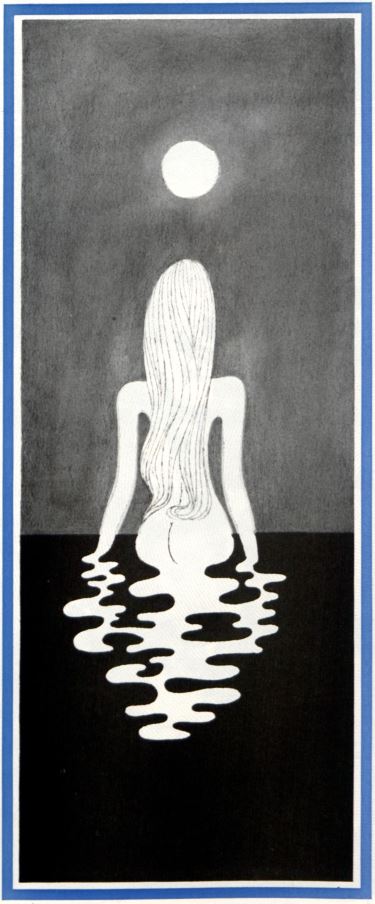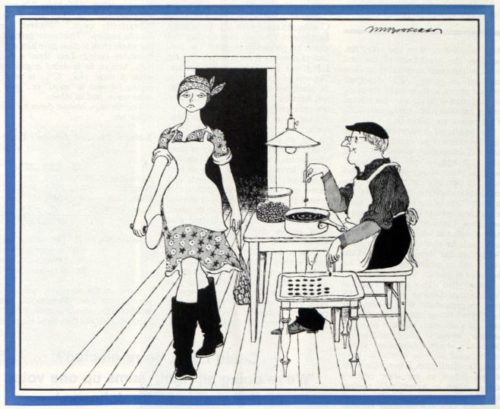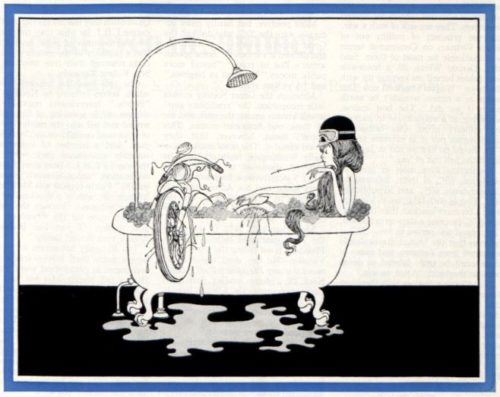A Low Blow for High Brow
Stars and critics from the world over have gathered in Hi-Brough, Nebraska for the municipality’s first annual international film festival. The exclusive week-long event has opened its screenings and discussions only to world-renowned film professionals as well as the town’s 571 residents. The amateur critics have weighed in on this year’s selections.
White Is the Luckiest Color (Turkmenistan)
Ashgabat Tourist Center and TurkmenOil collaborated to produce this glowing documentary of Turkmen president and protector, Gurbanguly Berdimuhamedov. The former vice president — who was thrice elected by 97 percent of his constituents — loves the lucky color white, and you will too if you want to travel to Turkmenistan. President Berdimuhamedov’s skeptics have criticized his decision to ban dark-colored automobiles in the capital “City of White Marble,” but this state-sponsored documentary dives into the undeniable power of light colors to bring about wealth and prosperity to the Turkmen people. With stunning, cinematic views of the Kopet Dag mountains and the 65-foot-tall golden statue of President Berdimuhamedov, White Is the Luckiest Color will compel you to book a flight to Ashgabat and drive the whitest car you can find around the marble city, as long as you aren’t a woman.
Hattie Wood (stay-at-home mom): “I had no idea that Turkmenistan’s president invented natural gas extraction, dentistry, and the internet. Maybe we should think about implementing a color-based car ban here.”
An Orchid Is Not an Ending (France)
The Chevrolet household is turned upside down when the enigmatic stranger Jean-Baptiste arrives at their countryside goat farm. Prolonged scenes of silent family breakfasts are interrupted by passionate drama in this sharp contender for the festival’s coveted Palme d’Corn. Intimate portrayals of lovemaking abound in An Orchid Is Not an Ending as the mysterious traveler beds each member of the Chevrolet family without uttering a single mot. In dazzling hi-definition, the film’s iconic final scene statically observes the rural French family sharing a brunch of baguette, fromage, and Chenin Blanc for a harrowing 47 minutes — even longer than the (rumored to be real) depictions of intercourse.
Donna Claiborne (agricultural contractor): “What happened to the goats? They have to be milked every day. These people supposedly run a dairy farm, but you don’t once see them milking their does.”
Dale Johnson (semi-truck operator): “It was good.”
Mighty Jurij (Slovenia)
Born from the tremendously popular comic book series, Mighty Jurij is the first animated adaptation of Slovenia’s favorite badger superhero. Of course, the comic reached its height of popularity in 1976, so younger audiences might be puzzled at Jurij’s glaring communist overtones. In this feature-length film that Ljubljana Magazine called “a startlingly graphic depiction of revolt that leaves little to the imagination in the way of global politics,” Jurij contends with a monocle-sporting dragon trying to return its hoard of gold to the people of the kingdom and convince workers to settle for a sort of market socialism.
Jennifer Meier (convenience store cashier): “The movie was cute, but now my daughter is begging me to buy her a plush toy of Jurij’s sidekick, Proletariat Pigeon.”
Love Like Ice (Sweden)
“You’ve never seen virtual reality like this before!” claimed one critic after experiencing the world premiere of this devastating Scandinavian eco-romance. Audiences are besieged with three and a half hours of immersion into the stark world of Lukas, the film’s 87-year-old protagonist, as he ambles the Swedish tundra in desperate — yet arbitrary — search of something he lost long ago. Something mysterious and immaterial. Something he can never find, despite the omnipresence of a bodiless female voice that whispers to Lukas (and the audience) nihilistic suggestions of suicide.
Jeannie Fritz (accountant): “The voice represents God, I think. Or maybe Satan. The virtual reality helmet gave me a headache.”
Beau Clyde (local business owner): “He’s on an island. That’s the twist at the end.”
Too Rich to Fail (United States)
Pop sensation Katy Perry makes her directorial debut in this zany, will-they-won’t-they comedy about an on-again, off-again, on-again wedding between two middle-aged executive types played by Neve Campbell and up-and-coming actor Kirk Cameron. She’s a bigwig financial consultant, he’s a straight-talking COO at the biggest marketing firm in town. The only problem? They’re entirely incompatible romantically.
Leon Walsh (electrician): “I preferred the Swedish movie to this one, and that’s saying something.”
Read Jeff Brown’s “High Art at Pike’s Peak” from 1968.
High Art at Pike’s Peak
If you’ve ever read from the Flat Stanley children’s book series, you’re at least somewhat familiar with the writing of Jeff Brown. Raised in New York, Brown became a child actor after attending the Professional Children’s School. His career took him to Hollywood to work as a producer and story consultant with Paramount Studios, but he eventually returned to the East Coast to work in magazines. Brown worked in the editorial departments of The New Yorker, Life, Esquire, and this magazine.
As an associate editor, Brown wrote a few short stories for The Saturday Evening Post, including “Incident on the Tenth Floor.” The following humor short, a write-up of an imaginary international film festival in Colorado, appeared in the Post in 1968. Brown’s sendup of pretension and absurdity in arthouse cinema came at a time of sea change in art and film. Some edits have been made.
For the benefit of those unable to attend next month’s Pikes Peak International Film Festival, here is a review of the more notable entries.

I, NAKED (Sweden)
The lyric pastoralism, the poignant plastic qualities that have long thematically dominated the Swedish film, are much in evidence here. Bathing au naturel in a pond on her father’s farm, lovely 19-year-old Ingrid is secretly observed by a vacationing Oslo banker (Oslö Benker) who later employs her as a maid at his chalet, where she is seduced by her employer’s young son (Jong Söhn) and cast out, only to be held captive in the mountain but of a crazed peat seller (Peter Sellers). Escaping at last, Ingrid returns to her father’s pond; weeping for her lost innocence, she bathes with all her clothes on and drowns.
Awarded the Golden Nude at the recent Trans-Scandinavia Festival, the film is the first directorial effort of one of Sweden’s leading actresses, Mai Güdness, who appears briefly in the role of Ingrid.
SUN KING, SUN KING, SHINE ON ME! (France)
Provocative revelations of intrigue at the court of Louis XIV, directed by Jean-Claude Flangé. the 10-year-old enfant terrible whose first film, The Terrible Infant, (a thinly disguised attack on Flangé’s own baby sister), stunned European audiences last year. Peter Sellers scores brilliantly as Louis XIV, Cardinal Mazarin, Bismarck and Lola Montez.
OUR FRIEND FANGA (Rhodesia)
Game Warden Ronnie Smythe-Hadley’s documentary account of Fanga, a leopard raised from gamboling kitten to mature pet in the Smythe-Hadleys’ African home. The perseverance of the documentary film maker is particularly evidenced by the thrilling climactic footage of Mrs. Smythe-Hadley being devoured by Fanga under the family piano. “She kept shouting. ‘Shoot, shoot!’” her husband recalls. “I knew she meant film, of course, so I just kept grinding away.” His sob-choked narration of the episode pays tribute to his late wife.

FOOLISH CANDY (Poland)
A superb example of Slavic realism, set in the confectionery district of historic Warsaw. In the words of director Stanislaus Czik:
“Here is sad Polish story of old Zygmunt, raisin dipper at State Chocolate Works. Poor lonely man, got all day only little raisins, got for night only miserable two-room flat where live also four brothers, three wives of brothers, eight nephews, four nieces, six cousins, two boarders from Cracow.
“But now comes to Chocolate Works new bonbon girl, Wanda. Very pretty. very athletic, plays every day ping-pong in recreation hall. For Wanda the foolish Zygmunt feels great love, has dreams to win Christmas ping-pong tournament so she will have love for him. From old raisin box, he makes paddle; every night, secret, he has practice in small closet of miserable two-room flat.
“At last is Christmas! Through storm of snow, old Zygmunt goes in street to tournament. But at gates of Chocolate Works — whoosh! whoosh! — wind blows him down, and now on top of him come one streetcar, one bus. So no ping-pong, no Wanda, no more Zygmunt with his foolish dreams.”
The film is cast entirely with amateur chocolate workers.
VILLAGE ON THE GANGES (India)
The story of a small boy’s efforts to teach his water buffalo to swim.
Directed by S.K.R. Himalaya, whose earlier films (Whirl My Dervish and the musical Hello, Delhi!) have been acclaimed for their trenchant portrayals of Indian life.
HERE IS EVIL AMERICA (People’s Republic of China)
From Peking’s Chairman Mao Studios, a documentary designed to acquaint the Chinese people with the United States today. Major sequences depict the hovels of infant munitions workers on President Johnson’s estate in Beverly Hills.
BIKINI BUNNY VOTES FOR LOVE! (United States)
An impetuous teenager (Doris Day) rises from obscurity in the Malibu surf to fame in Washington as Secretary of State. The playboy President (Toshiro Mifune) at first resists his love for the pretty Secretary, but surrenders when Supreme Court justices (Peter Sellers) smuggle her into the White House sauna on the eve of World War III.
In addition to the various national entries, the Pikes Peak Festival will offer two features by the controversial “underground” filmmaker, Cess Poole.
SALAMI: A five-hour study of Poole’s Uncle Max devouring a three-foot Genoa salami.

BEND MY HANDLE BARS: Socialite actress Baby Grace Hohenzollern bathes with a battered Honda in a tub of lime sherbet.
Presented on five split and revolving screens, both films are dramatically enhanced by the flicker of the stroboscopic lighting for which Poole is famed. “Incredible!” said one critic at a recent preview. “Movies have gone as far as they can go!”
“That statement neatly sums up the entire festival,” says the Pikes Peak program director. “We’re sure all who attend will agree.”